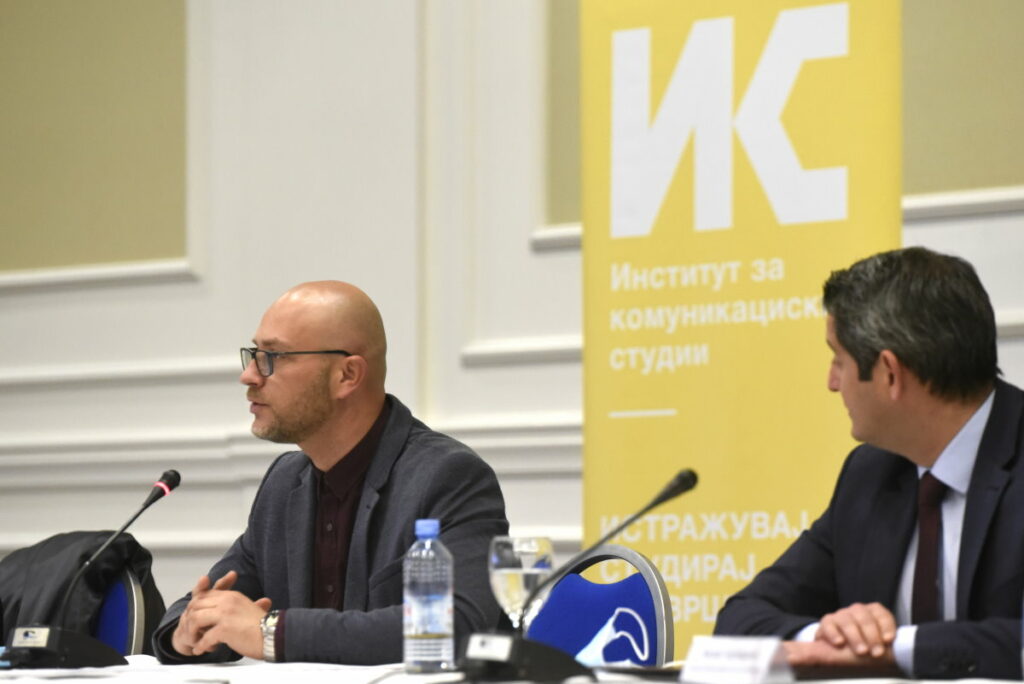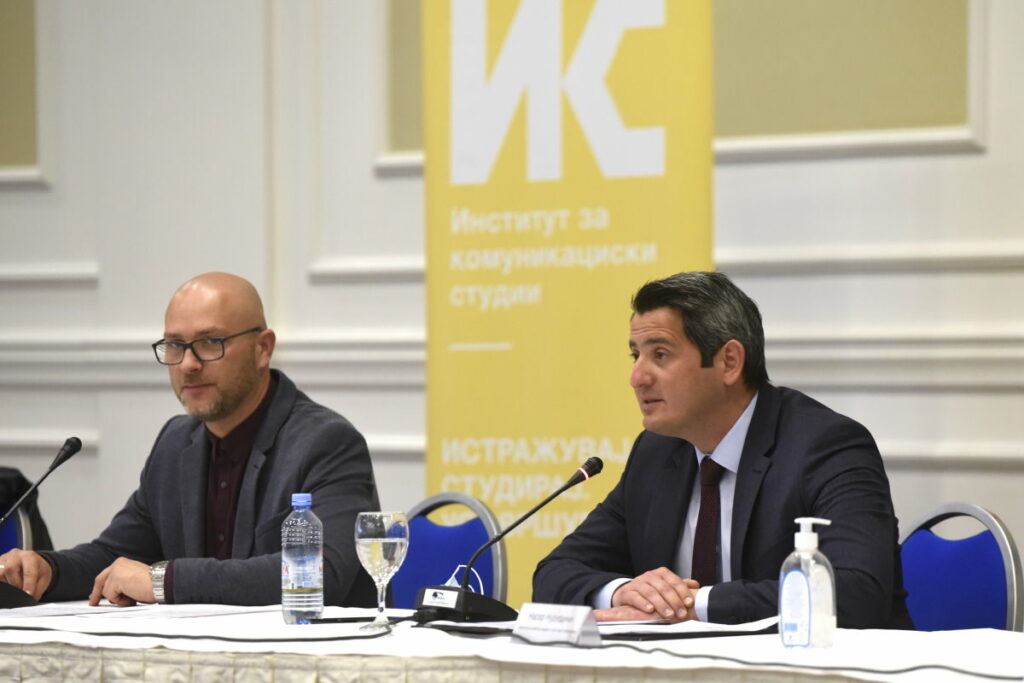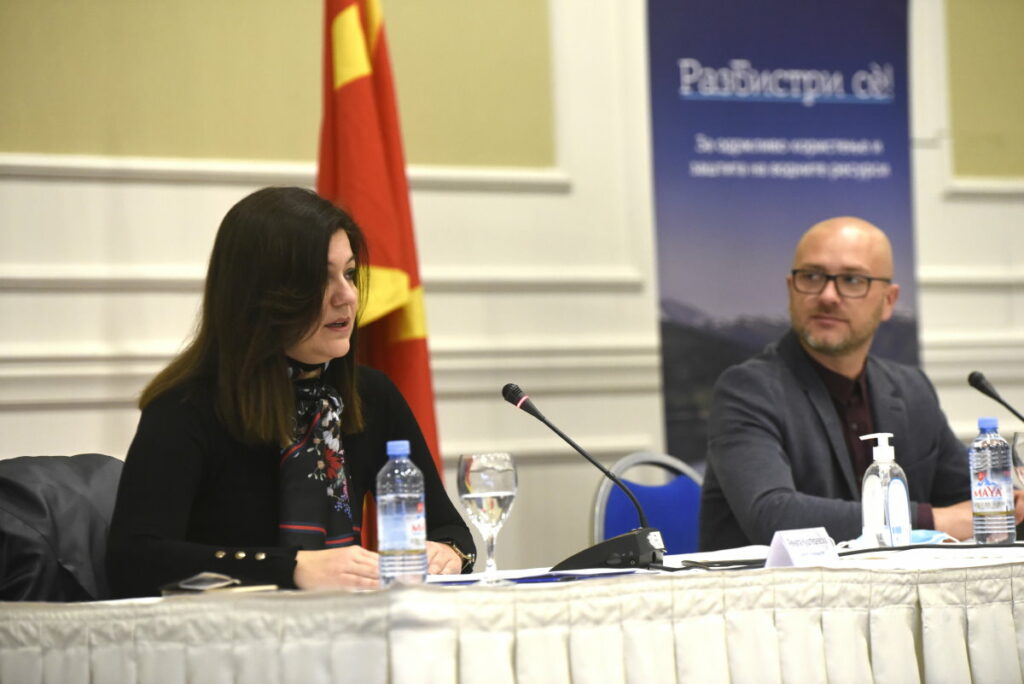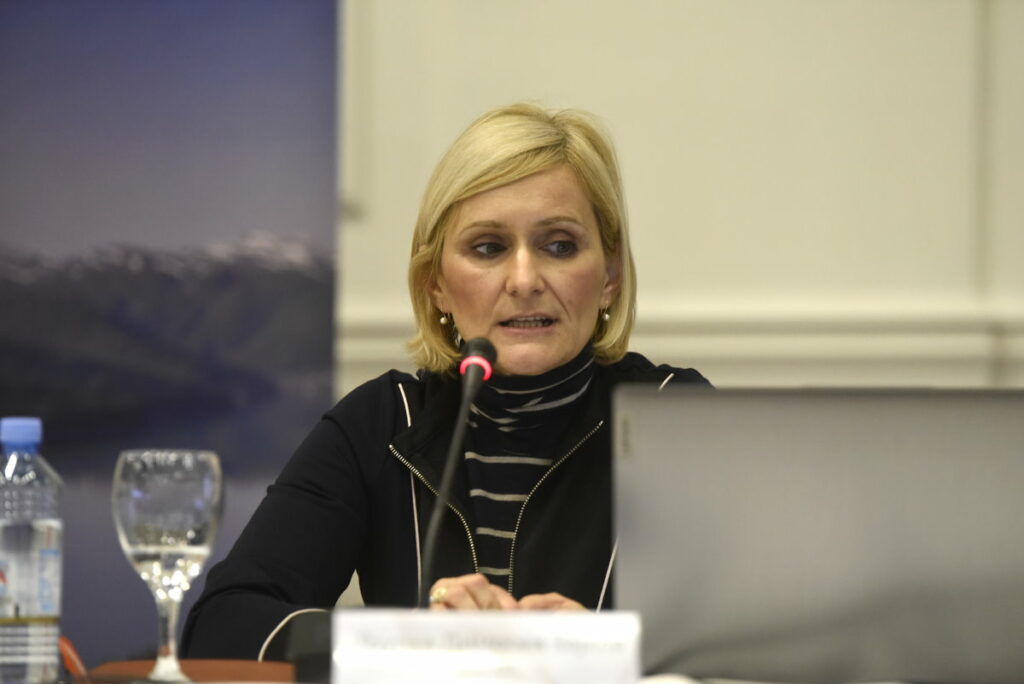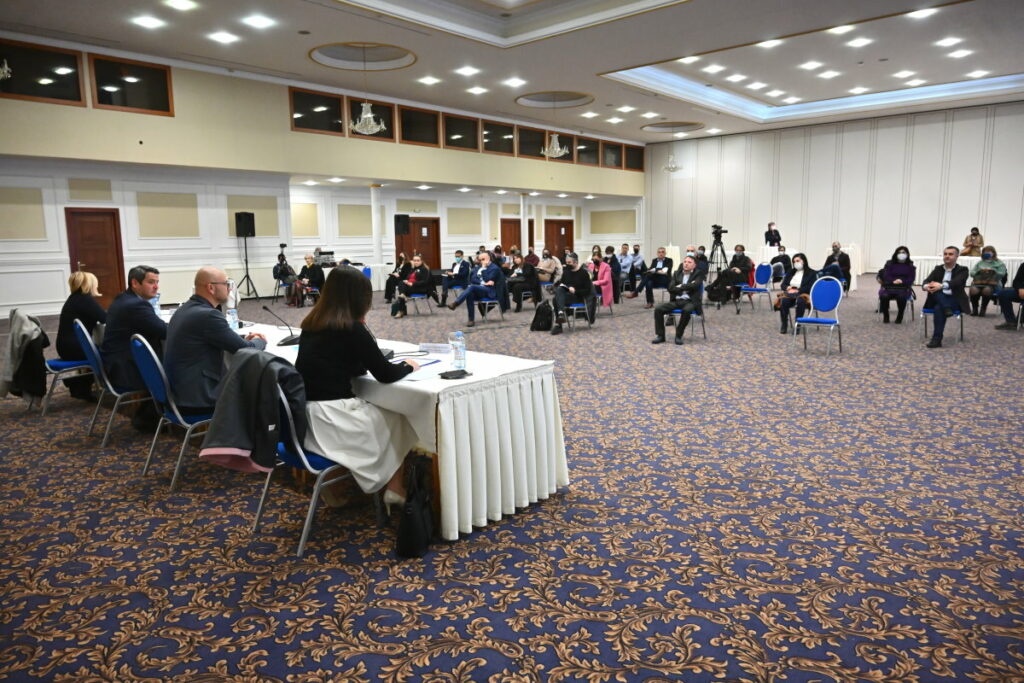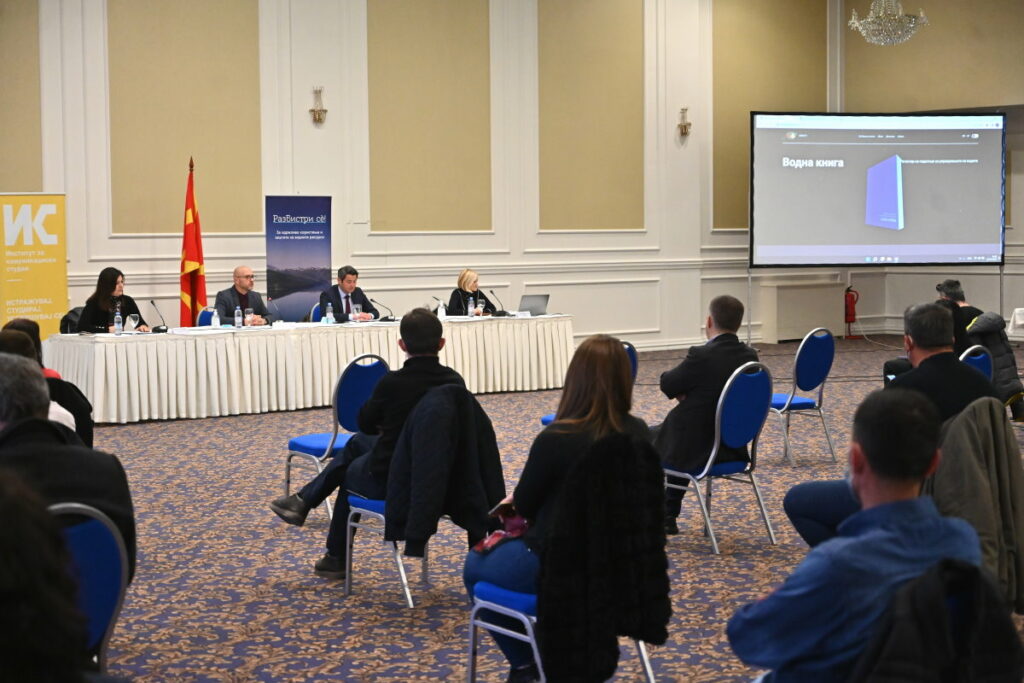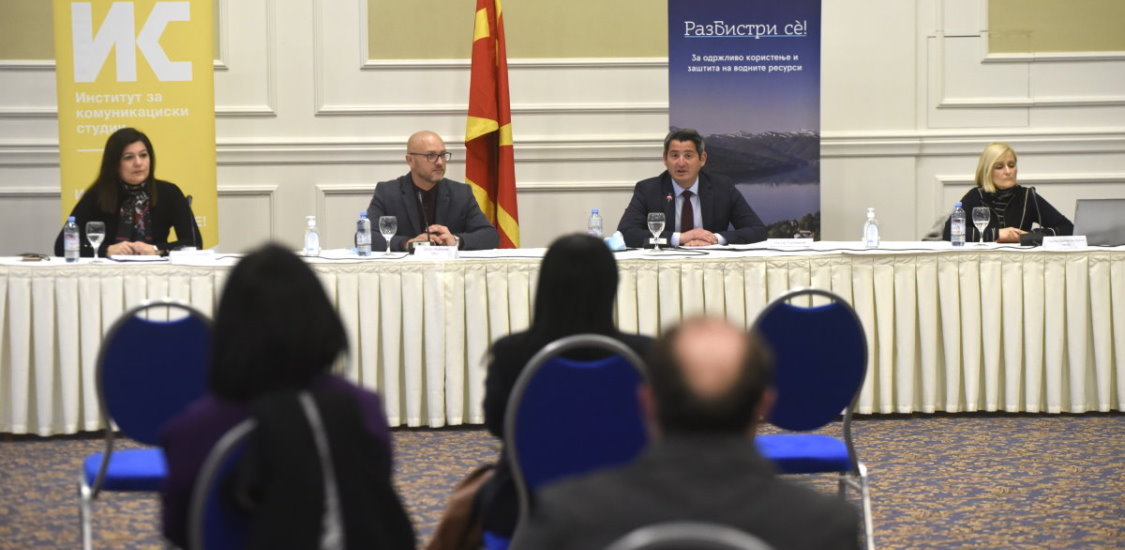
Water-use permits open for public scrutiny and standardized monitoring for water quality and quantity
Citizens get insight into which companies and enterprises hold permits to use waters and permits to discharge into the water or dig sand, gravel and rocks from rivers and lakes. The competent authorities, on the other hand, will be able to better monitor and sanction those who do not comply with the permits, thus preventing water degradation. For a more realistic picture of the status of water resources, the monitoring of the quality and quantity of surface and groundwater is standardized.
This is made possible by the digital platform that supports the Water Ledger – a water management database – and the Methodology for Monitoring of Water, which were developed within the “Clear it Up” campaign, for the needs of the Ministry of Environment and Physical Planning (MoEPP).
The digital Water Ledger contains information on the permits and concessions issued by the Water Department at the MoEPP. It ensures continuous maintenance of the information system for permits and their monitoring, and provides citizens and inspection bodies with free access to information from the system, without having to submit special requirements and go through various procedures. The data from the Water Ledger should help provide insight into the impact made on waters; determine the origin of pollution; and assess whether the strain that the water resources are under is in accordance with the permits.
At today’s presentation, the Minister of Environment and Physical Planning Naser Nuredini said that the digital platform will contribute to the transparency of the data from the Water Ledger.
“The public has the right to access environmental data and to know about the manner and conditions under which water resources are used. Through this digital platform, all relevant data from the Water Ledger will be made public and easily accessible to all stakeholders,” Nuredini said.
The standardized monitoring methodology adopted by the MoEPP was presented today and it will be used for systematic monitoring of the state of surface and groundwater. The Rulebook on the methodology prescribes the manner of monitoring and assessment of the ecological and chemical status and quantity of waters.
The methodology for water monitoring was prepared by professors from the Institute of Biology at the Faculty of Natural Sciences and Mathematics – Skopje and experts from the Hydrometeorological Service (HMS) and the Hydrobiological Institute – Ohrid.
“Monitoring, assessing and classifying water quality is vital for humanity and is directly related not only to human well-being, irrigation and sustenance, but also to the survival of various living organisms that contribute to the ecological balance of planet Earth,” was stated by professor Renata Kjusterevska, Head of the Institute of Biology at the Faculty of Natural Sciences and Mathematics – Skopje.
The event was organized in recognition of World Water Day – March 22, and this year it is celebrated under the motto “Groundwater: Making the invisible visible.”
The “Clear it Up” campaign is implemented by the Institute of Communication Studies (ICS) and is supported by the British Embassy in Skopje.


